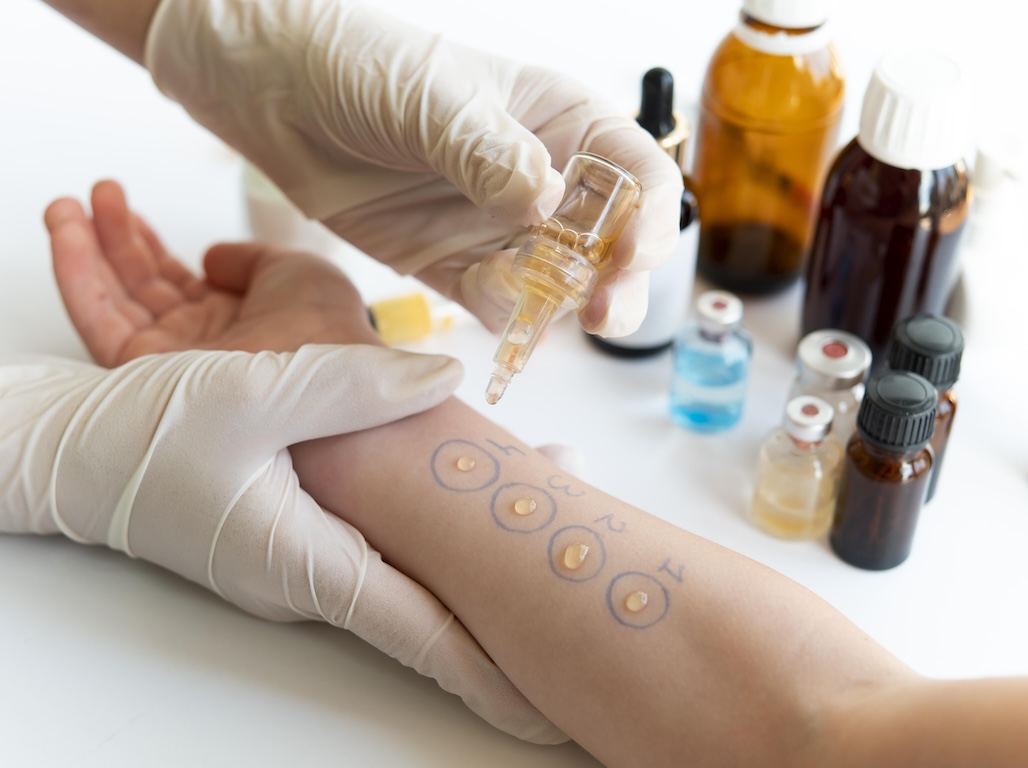SingaporeMotherhood | Baby & Toddler
November 2011
Choosing an Allergy Test : The Lowdown

While there are many allergy tests to choose from, you should really only consider three. These are the Skin Prick Test (SPT), the IgE blood test, and the oral food challenge (OFC). They are the only allergy tests that are medically verified and approved. There is no doubt that “allergies” and all that they entail are vast money-spinners. As a result of this some tests fail to put accuracy or even patient safety above generating income.
As Dr Chiang of KK Women’s and Children’s Hospital says, “Accurate diagnosis of food allergy in children is of the utmost importance. Inappropriate food elimination is just as harmful.” Another other possible consequence of inappropriate allergy testing is that the sufferer may not carry relevant and potentially life-saving medical equipment such as the EpiPen or antihistamines when they should be.
Allergies are life changing, and they are not easy to deal with. Globally speaking, allergies affect around 2 per cent of the adult population and 5 per cent of the paediatric population. This includes allergies to food, the environment, or both. The diagnosis of “allergy” is hard hitting, and has a huge impact on the allergy sufferer’s life. This is why accurate and safe allergy testing is so important. If you suspect that you yourself or your child has an allergy, you need to know what you are dealing with.

Allergy Tests in Singapore
Allergy tests that are medically verified and approved can seem expensive. An SPT costs about $150, the IgE $200, and the OFC is $400. However, this is money well spent if you and your doctor suspect allergies. The other (unverified) tests out there can be as accurate as “eeny, meeny, miny, mo”, which is about as cost effective as throwing your money down the drain.
Although the name may suggest otherwise, the SPT is not actually painful. A small drop of the ‘allergen’ is placed on the skin and the tip of a lancet is used to prick the skin through the allergen. It is possible to test for multiple allergies, up to 25, in one sitting. If the result is positive there will be a visible reaction on the skin in the form of a raised reddish weal or welt. Results can come in on the same day. Any reaction needs to be interpreted by a doctor. If necessary there may be a follow up with either an IgE blood test or an OFC.
The IgE Blood Test
During the IgE blood test (sometimes referred to as a RAST test and not to be confused with the IgG blood test), blood is taken from the patient and sent to a laboratory for analysis. The presence and levels (if any) of the allergen-specific IgE antibody will allow the doctors to confirm or dismiss the potential allergy.
Although this test can analyse hundreds of potential allergies in one go, it is usually unnecessary to run the whole battery of allergens. Your doctor will choose the most appropriate ones depending on the clinical history. This test is also useful to monitor the allergy for improvement or an increase of IgE levels to a specific allergen.
Dr Lee Bee Wah from Mount Elizabeth Medical Centre adds, “Allergy skin or blood tests can help in the diagnosis of immediate (also known as IgE) allergy to food and inhalants. It is also useful for the monitoring of food allergy”.
Oral Food Challenge (OFC) Allergy Test
The third medically-verified and accepted method of diagnosing allergies is through an Oral Food Challenge (OFC). If results of the SPT or the IgE blood test are ambiguous, the next step is the OFC test. In this test, the patient eats a small amount of the suspected allergen, and their reaction determines whether there is an allergy or not.
Never do this test at home. It must be given under the care of a qualified doctor who has the necessary medical equipment at hand in case of any adverse reaction.
Any of the other so-called allergy tests out there do not have medical approval, and are not verified or reliable. “Unfortunately there are many laboratories around the world, including Singapore, that offer allergy testing that is not scientifically validated. Some have been disproven. Doing such tests may be misleading,” Dr Lee Bee Wah cautions.

Other Common Allergy Tests
Below is a summary of the common allergy tests available that have not been verified.
IgG blood test
The IgG blood test looks for food-specific IgG, and measures the IgG antibodies to various foods. Do note that IgG is also present in people without any evidence of food allergies. There is no clinical evidence to support a link between food allergy and food-specific IgG levels.
Electrodermal Testing (sometimes called VEGA testing)
This is a form of modified electro-acupuncture that determines allergies based on the skin’s ability to conduct electricity when exposed to the allergen. In a recent study titled ‘Food Allergy Diagnosis’, Doctors Beyer and Teuber stated: “We still conclude that electrodermal testing cannot be recommended for the diagnosis of food allergy, since it is without established scientific basis”.
Applied Kinesiology
The patient holds a sealed container (with the allergen inside) in one hand, while the practitioner tests the strength of the other arm. Any sign of weakness means that there is an allergy. Beyer and Teuber’s report confirms that “kinesiology as a diagnostic tool is no better than random guessing”.
Cytotoxic Test
A drop of blood is added to a dried sample of the suspected allergen. Changes in the food particle diagnose an allergy. All medical literature surrounding it debunks this test.
Chemical Testing
Various bodily tissues and fluids are tested for a wide range of substances such as heavy metals, pesticides, organic solvents, minerals and cytokines. It is a long list. The theory is that people with high levels of these chemicals have a damaged immune system, and therefore have a predisposition towards allergies. Not medically verified and approved.
Bioresonsance testing
This test measures the body’s electromagnetic energy and assesses one’s current health status, food intolerances, vitamin/mineral deficiencies and chemical toxicity. There is no scientific basis for this form of testing, which can apparently test for various health problems. Professional academic bodies do not endorse this.
Allergy Testing “Home Kits”
Avoid home testing allergy kits. These can be dangerous and highly misleading. They do not use the medically verified and approved ways of testing for allergies. Results must always be interpreted by a doctor.
Vicky Henniker-Anandraj is the editor of sneezywheezy.com, Singapore’s only allergy blog.
Featured image: freepik
All content from this article, including images, cannot be reproduced without credits or written permission from SingaporeMotherhood.
Follow us on Facebook, Instagram, and Telegram for the latest article and promotion updates.





